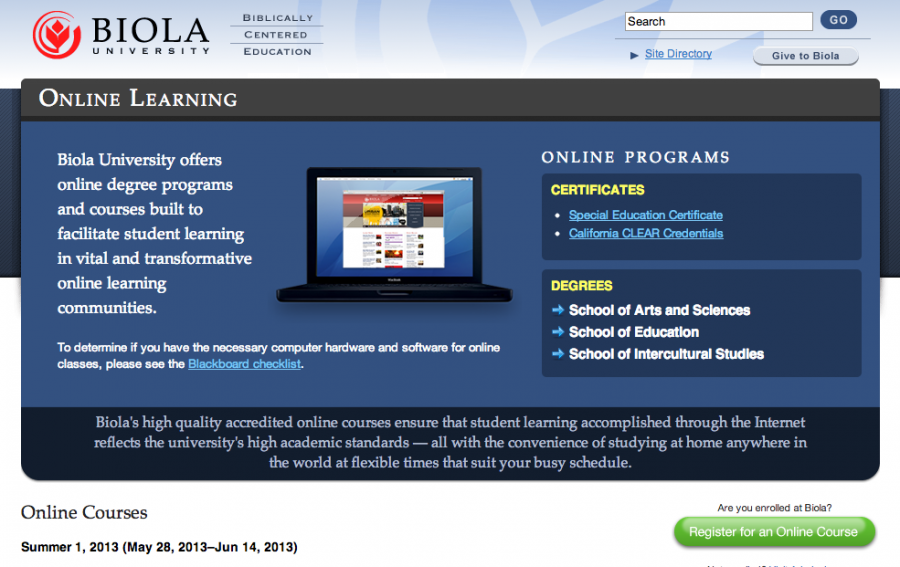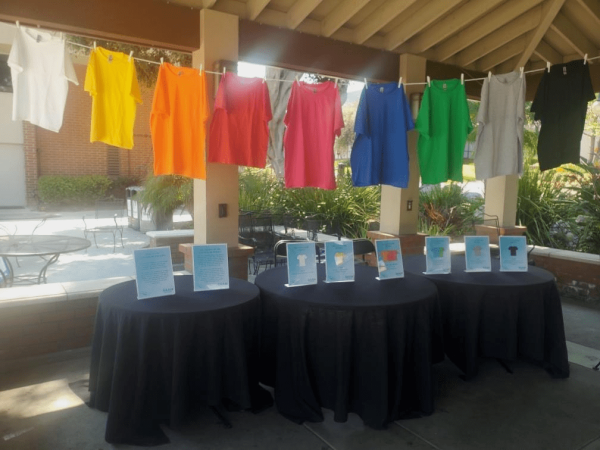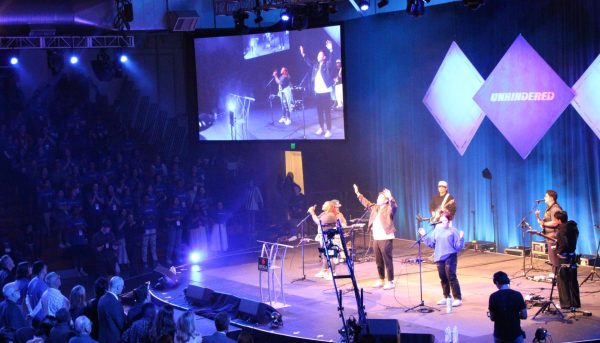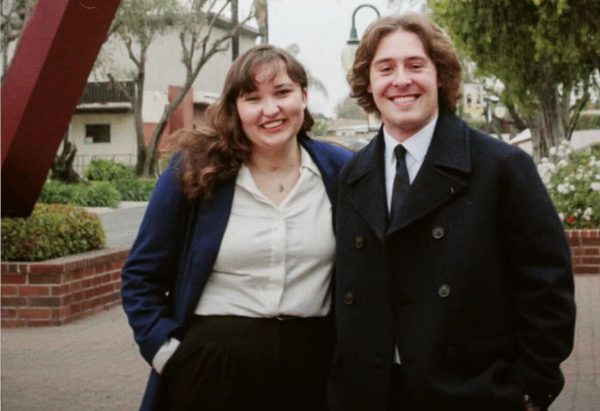Senate bill may reduce public college crowding
Massive online credit courses may become an option for California public schools.
March 28, 2013

The California state senate is considering Senate Bill 520, which would mandate public colleges and universities to accept credit for massive open online courses in an effort to reduce class shortages.
The bill could quash the upper hand of private universities such as Biola, according to Greg Vaughan, vice president for enrollment management.
If it is easier to get a desired class, than Biola’s lack of shortages would no longer be a draw, Vaughan explained. Students might choose to stick it out at a public school rather than come to Biola.
Four-year graduation rates between public and private universities contrast starkly. Forty-nine percent of students at Biola graduate within four years, according to U.S. News. The number drops to 14 percent at California State University, Fullerton and 12 percent at California State Polytechnic University, Pomona.
“We had a college senior from one of the Cal State schools that was just so fed up. They transferred to Biola just because they wanted access to classes,” said Vaughan.
If the bill passes, students at public colleges and universities who are unable to secure a seat through the school’s traditional enrollment process can enroll in a MOOC.
MOOCs are run by private third-party companies, with course offerings available through universities including Harvard, Carnegie Mellon, Duke and Yale. The class sizes are not limited. One Fundamentals of Human Nutrition class at the University of Florida exceeded 45,000, according to the UFL website.
Currently, most MOOCS do not count for college credit. Reviewing and accrediting the courses is included in the purview of the the bill.
Classes are to be certified by either the American Council on Education or another reputed reviewer. Representatives from California Community Colleges, California State University and the University of California must also approve the classes, according to the proposed legislation.
Overcrowding in the Public System
Last fall, an average of 7,000 California Community College students were wait listed per school, according to a fact sheet from senator Darrell Steinberg, a key sponsor of the bill. With 112 California Community Colleges in the system this totals to nearly 784,000 affected students.
One such student was junior mathematics and secondary education major Garrett Huckabay, who transferred to Biola from Sierra College, a community college in Rocklin, Calif.
“I was put on waitlists, but I fortunately got the [waitlisted] classes,” Huckabay said.
Are Class Shortages a Problem at Biola?
Class shortages have not been a significant problem at Biola, according to undergraduate counselor Kevin Verzani.
In four and a half years, undergraduate counselor Carrie Stockton has never seen a class shortage delay a student from graduating on time.
Failure to complete proper forms, financial reasons and procrastination are more likely factors in students’ failure to graduate on time, according to Verzani.
Education Trends Shift
A taskforce — alongside Paul Kim, a consultant from Stanford University — is working on expanding online class offerings at Biola, according to Vaughan.
Online classes are increasingly available and accepted even at private institutions like Biola.
Talbot faculty were initially skeptical about the ability of online education to provide a quality experience, according to Vaughan. However, today he sees professors such as Matt Williams and Joanne Jung who love their experience teaching online.
The taskforce is currently focused on making more Bible classes available through a standard online format and creating an online platform for IRIS. These offerings are are seen as potentially marketable, according to Vaughan, who also noted that the taskforce is looking down the road at other opportunities.
“[The taskforce] is to not only launch these specific courses but to build the assembly line for future courses,” Vaughan said.
Kim views MOOCs as an entry-level stage to the online education continuum, Vaughan explained.
“Biola is looking at whether MOOCs should be part of our online portfolio,” Vaughan commented.
Yet while these courses may increase capacity, they might also reveal the importance of a physical classroom and an interactive student body, Vaughan suggested.
“They might say, ‘Sure, I can get a MOOC, but I’m not excited about that kind of education. I still want the personal touch; I still want the community experience,’” Vaughan said.







